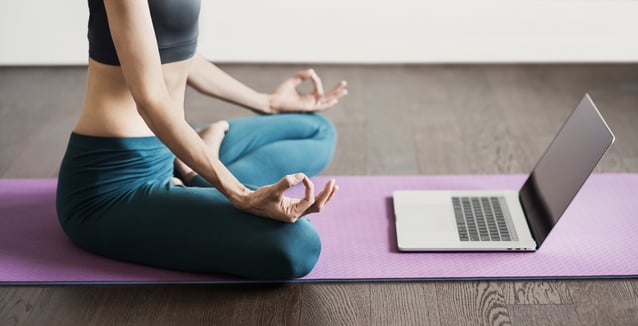
The fall semester of 2020 has shown so many institutions of higher education the challenges of running courses during the current public health crisis. COVID-19 has forced some difficult decisions about in-person classes and has challenged schools to offer many virtual or hybrid options that might not have existed before. Portland Community College does everything we can in order to keep our students and our staff safe, hoping to maintain a sense of normalcy while also creating a positive and educational experience for all.
In order to learn more about what the IHP courses at PCC CLIMB are going to look like this winter, we interviewed Ann Wagoner, an adjunct faculty member at Portland Community College. She carries many of the most important certifications in the fields of yoga and Ayurveda, including her MA, Board Certified Ayurvedic Practitioner, CAP-NAMA, Yoga Therapist, C-IAYT, and the E-RYT-500 Yoga Alliance.
She regularly teaches in the Ayurvedic Yoga Health Program with the Institute for Health Professionals. "We offer classes each term in the 200-hour Yoga Alliance certification and 300-hour Yoga Alliance certification," she says. "I also teach Yoga classes and gentle toning and stretching. Each term we have a new class that corresponds to the season for natural healing."
In IHP, students can become an Ayurvedic & Yogic Health Advisor, taking 50 or 75 hour classes for four terms before certifying and registering with the Yoga Alliance.
This Winter in the IHP
Wagoner shared with us that the 300-hour class this winter will focus on Yoga & Asana for Mental Clarity. "This course explores the energetics of consciousness, Sankhya philosophy, and Patanjali's teachings on the mind, as well as techniques for relaxation and awareness," she explains.
Mental clarity is particularly helpful during the cold, darker season, during a time when we may be prone to mental fog and a feeling of sleepy haze due to spending a lot of time indoors. Using your yoga training course at the Institute for Health Professionals as a way to keep your practice alive and your mind nimble is a wonderful strategy.
For the 200-hour class, the seasonal element will incorporate cooking, aromatherapy, and herbs for a course called "Ayurveda, Yoga, and Tridosha." In addition, restorative yoga, marma, and breathing practices will be used - "discover how to balance the mind, body, and spirit through both Yoga and Ayurveda," she encourages.
Virtual Learning and the IHP Yoga Classes
Wagoner has seen some very beautiful positive elements from the time of virtual learning so far through PCC CLIMB and the Institute for Health Professionals. Yoga and Ayurveda may be easier to connect with from the comforts of home or a familiar space, so the online coursework can be accessed while in a personal and private space.
Busy professionals and other individuals with many demands on their time find that there are real benefits to taking courses online and being able to tune in anywhere. "There is no travel time or commute time, no problems finding time to eat dinner before class," says Wagoner.
Making food in your own kitchen for the Ayurvedic cooking section of the curriculum is particularly hands-on, as class participants add a few key ingredients to their pantries to be able to keep spicing their foods and maintaining their Dosha well long after the days of the class itself. This is an unusual and prized benefit of taking a cooking-related class online.
Finally, concluding a yoga class at home is much more relaxing than concluding elsewhere and then having to drive a long way home. "You can stay in the final relaxation posture longer and maintain that relaxed state of mind without having to drive through traffic," says Wagoner.
Building a Yoga and Ayurvedic Community
Wagoner has especially enjoyed seeing community members from all over the country in addition to the practitioners who live in the Portland Oregon area. Their robust online platform allows for breakout rooms and home study assignments that connect across many different locations. "It's truly a delight to build such a wide community and share the information with those who need it most," says Wagoner.
The class is more accessible than ever, making it an option for a wider variety of individuals who may need to occasionally view a recorded class online when they would have otherwise missed out because of an absence.
Wagoner sees this as a very good opportunity for anyone who has been considering online learning opportunities through the Institute for Health Professionals. "When we practice Yoga Nidra in the winter, it can be deeply relaxing, restorative and calming for the mind. Take time this winter to nourish and take care of yourself!" she says.
Ready to learn more about the IHP and the ways that yoga and Ayurveda can help you this winter? Use PCC's IHP courses to relax and restore this winter.



